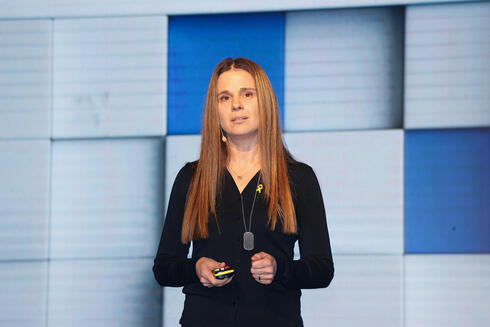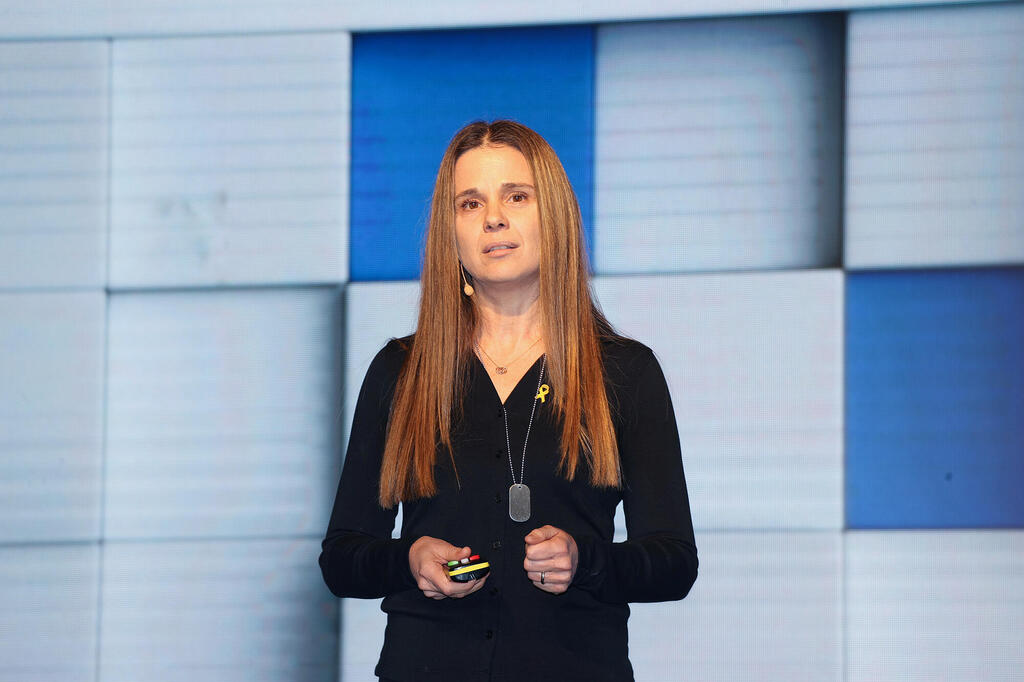
Tech TLV
"The war will give birth to the next generation of the most advanced technologies in the world"
Maya Eisen Zafrir, CEO of LeumiTech spoke at Calcalist's Tech TLV conference held in collaboration with Bank Leumi and PAPAYA. "Now that a global recovery is already on the horizon, we must look beyond the local challenge and ensure that Israeli high-tech will also overcome this crisis"
"The war shook the entire Israeli economy and in particular the tech industry," said LeumiTech CEO Maya Eisen Zafrir at Calcalist's Tech TLV conference held in collaboration with Bank Leumi and PAPAYA. "The figures that emerge from the joint report of LeumiTech and IVC do not leave much room for doubt - in 2023 we see a 50% decrease in investment volumes compared to the previous years, which return us to the levels of 2018-2019. 2021-2022 were exceptional years, with extremely high investment levels and generous valuations. We all knew and understood that a correction would come, but I think no one believed how powerful it would be."
Eisen Zafrir added that precisely during these days, when we are in the eye of the storm, we must remember the strengths that made us a startup nation that became the driving engine of the Israeli economy and a significant player in the world. "We have already overcome difficult times in the past, so now that we are noticing the first signs of recovery in the United States, it is more important than ever that we recognize the sources of strength and the opportunities that exist despite and because of the war.
"After years characterized by zero interest rates and investment levels that were three and four times the previous years, in the last two years we have encountered a sharp change in market conditions. The rules of the game have changed, as have the demands and expectations of the venture capital industry from startups: the focus that was previously focused on growth at any cost, has quickly shifted to focus on efficiency and profitability. As a result - the entire high-tech industry is going through a long process of business streamlining: the startups are going through downsizing and streamlining processes and even making changes in the business focus, making brave decisions - giving up markets, and adapting and changing products. This process, even if it is difficult, produces more stable and durable companies."
Eisen Zafrir stated that the Israeli entrepreneurs have to deal with additional local challenges that the global players are not required to deal with, including about 10 months of a social crisis that preceded the war. "This presents Israeli startups with enormous challenges and means our high-tech industry is not entering the global recovery at the same position"
"At the same time, I choose to believe that the war and the extreme conditions of the time actually strengthen everything that is special and amazing in the DNA of the Israeli startup nation. An industry that much of it was created on the basis of the knowledge gained in the army, the ethos whose main feature is the Israeli entrepreneur who does a lot with little, that takes a challenge and turns it into an opportunity and stands like David against Goliath to win in any situation.
"When you think about it, the situation in Israel is unique - many high-quality technologists and talents are serving in combat both at the battlefront and in the home front and personally face a wide range of unique tests: in defense technologies, cyber, logistics, AI and more. At the end of the fighting, they will return to their companies, or start the next generation of companies and will leverage the experience they have gained, making civilian adaptations of the technologies learned from the military. From these conditions, the next generation of the most advanced and most interesting technologies in the world will surely be born."
Eisen Zafrir provided some optimism with her insights from her discussions with international investors. "From conversations we have with international investors and observing the American economy, we are beginning to see signs of inflation moderating and announcements of interest rate cuts, so there is room for hope and expectation for the beginning of a recovery and a change in trend in 2024.
"I believe that when the global recovery meets the Israeli DNA, it will allow Israeli tech to continue to win and fulfill its mission to feed and push the Israeli economy."
To those who are at the head of the Israeli economy, she said: "We must continue with all our might to look beyond the local challenges and ensure that Israeli high-tech will also succeed in this crisis. High-tech was and will continue to be a key player in maintaining the resilience of the Israeli economy, and must play this role in its restoration as well. This is a large and challenging task that will require a lot of courage, determination and creativity, but I have no doubt that it is possible."














